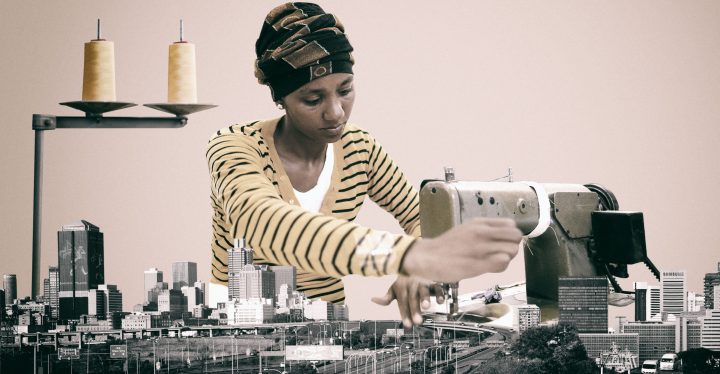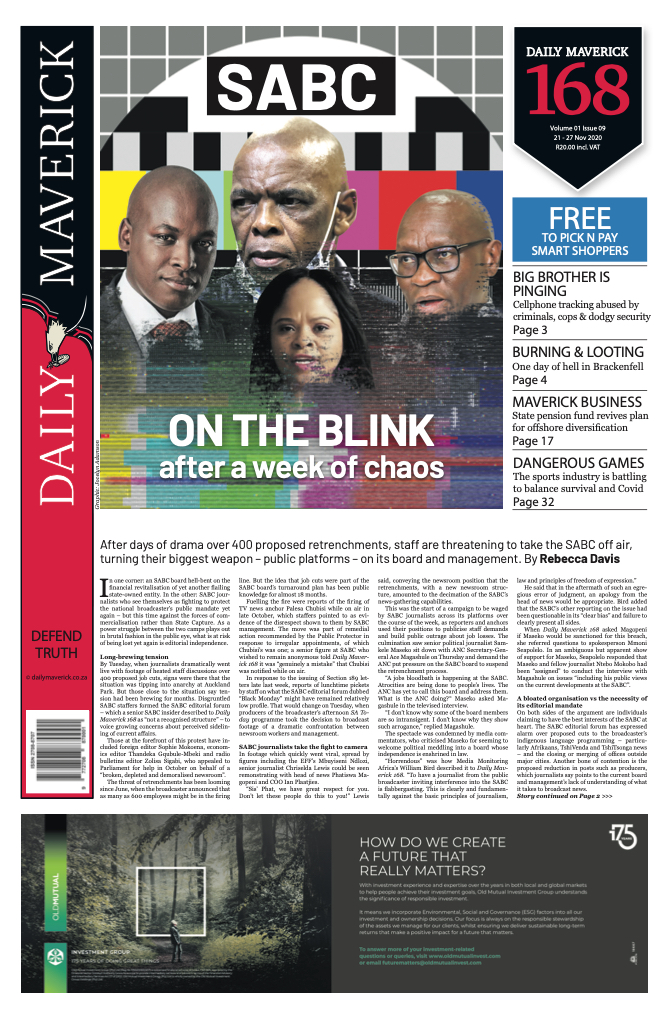BUSINESS MAVERICK 168
Updated World Inequality Database shines unflattering spotlight on inequality in South Africa

The online World Inequality Database this month unveiled a major update of inequality data for 173 countries, comprising 97% of the world population and 7.5 billion people. Among other things, it throws into sharp relief the growth of inequality in South Africa, which is a testimony to the failures of ANC rule.
First appeared in DM168
An update to the World Inequality Database (WID), a collaborative effort of universities, research centres and statistics offices, adds almost 50 additional countries. (https://wid.world)
“Our data … covers a more extended period of time, as well as, for each country income estimates for the entire distribution, from the poorest 1% to the richest 0.001%. The data goes up to late 2019, giving a precise picture of the state of global inequality right before the pandemic,” WID said.
And what was the global profile of income and wealth inequality on the eve of the pandemic?
“The Middle East and Latin America stand as the world’s most unequal regions, with the top 10% of the income distribution capturing, respectively, 56% and 54% of the average national income … In the Middle East, Gulf countries (Bahrain, Kuwait, Oman, Qatar, UAE, Saudi Arabia) have been marked [by] extreme inequality levels with little variation since the 1990s,” it said.
“Africa comes next as one of the world’s most unequal regions, with the top 10% capturing half of national income. Contrary to widespread view, there is no African exceptionalism in this area; its inequality levels are very close to those of Latin America or the Middle East. Extreme inequality levels can be found among nations which historically experienced white settlers’ colonisation and extreme forms of racial injustices (for example, South Africa).”
Indeed, South Africa is the most unequal country in the region. The data for South Africa shows that inequality has been on the rise in the 21st century.
In 1963, the first year for which the database has South African numbers, the top 10% of income earners had 48.9% of South Africa’s income. That dropped to 45% in 1993, but has been increasingly skewed since. By 2019, the top 10% accounted for more than 65% of South Africa’s income, while only 6.3% flowed to the bottom 50%. That compares with 16% in 1993.
Wealth inequality – which reflects income generated from capital, such as rents and dividends, as well as asset ownership – is more pronounced and grotesquely so, but has not been on an upward trajectory. In 2008, the top 10%’s share of net personal wealth was 90.7% and in 2017 it was 85.6%. The share of net personal wealth that accrued to the bottom 50% was -2.5% – a negative number.
The WID explains that: “Net personal wealth is the total value of non-financial and financial assets (housing, land, deposits, bonds, equities, etc.) held by households, minus their debts.”
So the debt levels of South Africa’s poorest households have pushed their net personal wealth into negative territory. Viewed through this prism, the bottom 50% in total effectively have no asset wealth.
“The persistence of inequality in such countries is in part due to the lack of land ownership reforms, the absence of social security and progressive taxation systems,” the WID said. That speaks to the failure of South Africa’s land reform programme, which the WID has simply dismissed as “lacking” – a pointed barb in the face of more than two decades of folly on this front. And such inequality persists, it must be said, despite a progressive tax system.
It is also probably unfair to say that a social security system is “absent” in South Africa, but the grants payments are aimed at taking the harder edge off poverty. They hardly offer a route out of poverty and only blunt wider disparities.
Of course, unless one is dreaming of some kind of socialist utopia, inequality will always exist. But such glaring inequities cannot be sustainable and surely go a long way towards explaining South Africa’s high rates of social unrest, violent crime and periodic eruptions of labour militancy.
Yet the wider point is that ANC officials are always banging on about the trifecta of poverty, unemployment and inequality, while government policies are surely at least partly to blame for this worsening state of affairs. They have historical roots in colonialism and apartheid, but the ground remains fertile for their growth. In the wake of the pandemic, unemployment is now more than 30%, and the economy had been mired in recession even before it struck.
Unless something drastic changes, South Africa’s inequality trajectory looks set to continue in the wrong direction. DM168/BM





















 Become an Insider
Become an Insider
Comments - Please login in order to comment.